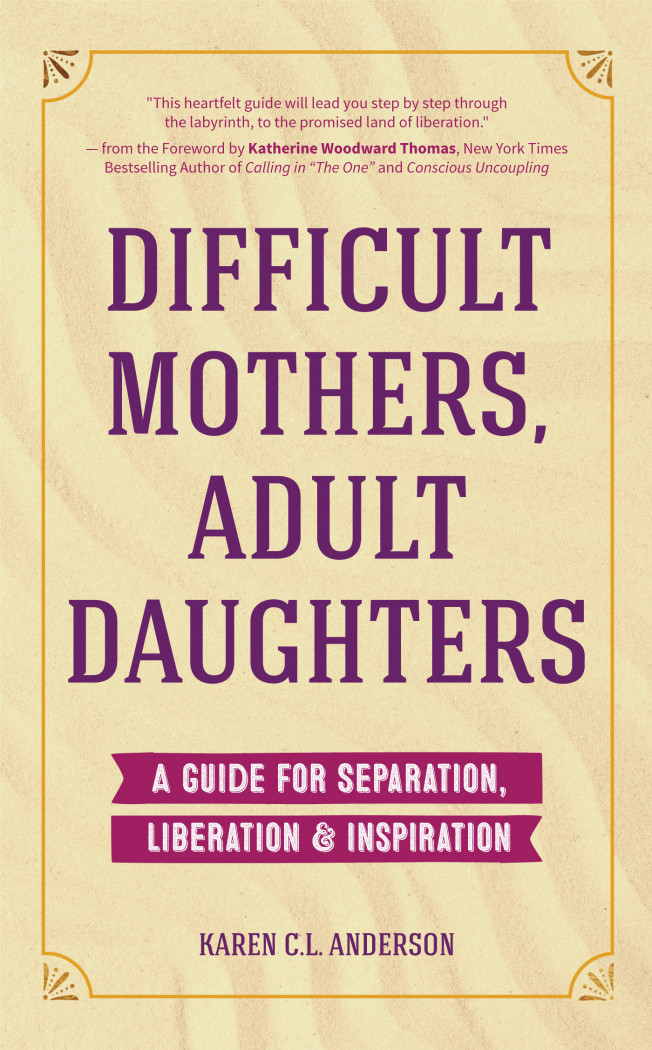Just now I was reading a novel in which one character (let’s call her Ann) says to another (let’s call her Zoe), “There’s no need to feel embarrassed.”
Ostensibly, Ann wants Zoe to feel better. She doesn’t want Zoe to feel embarrassed.
Why?
Why do we even say things like this?
You’re overreacting.
Don’t be so sensitive.
Calm down.
There’s no need to feel that way.
One theory I have is that other people’s uncomfortable emotions and experiences are uncomfortable for us and we don’t want to be uncomfortable.
And sometimes they’re downright inconvenient.
As a little girl of three, I had tremendous grief when my mother and father divorced. My grief was inconvenient. Stuff had to get done. People had jobs to go to and money to make and things to take care of.
Two short years later my mother married my stepfather. I was the flower girl and I was excited to wear my pretty yellow dress and black patent leather Mary Janes. After the ceremony, the truth — that my mother and father weren’t ever going to get back together — sunk in and I was inconsolable. My stepfather had to carry me out of the church because I was crying so hard.
No one had the time to be cracked open by the messiness of my vulnerability and grief. This was supposed to be a celebration.
So I danced at the reception in my pretty yellow dress and black patent leather Mary Janes.
The grief? I put it off and denied and stuffed and resisted it for years. Decades.
If being human tends to be messy and inconvenient, then dealing with deep, systemic trauma can be overwhelming.
~~~~~
We live in a country — in a world — that has a history of traumatizing children.
“We’ve gone from separating Native American babies from their parents (and then exterminating them), to stealing babies from their slave parents (and then re-selling them into slavery), to building a country on child labor (working in factories as young as 8-yrs. old), to incarcerating Japanese-American toddlers in internment camps, to allowing priests to sexually abuse children for decades, to forcing buckets of high-fructose corn syrup down kids’ throats until half of them are part of a childhood obesity epidemic, to turning our schools into killing fields because we love our guns more than we love our kids.” ~ Michael Moore in response to people saying “This isn’t who we are” in response to our current President’s policy of separating children from their parents who are seeking asylum in the U.S.
I don’t pretend to think that my writing about it will solve such deep, systemic trauma in my lifetime. But I do know that the connections we make, the truths that we tell, the messiness we are willing to explore, the inconveniences we are willing to experience, the dollars we are willing to donate, the time we are willing to spend calling, faxing, and emailing those in supposed “power,” the protests we are willing to attend, the dreams we are willing to have, will help us reach a tipping point, eventually.
Getting back to “There’s no need to feel _____________” and other lies we’ve been told.
Humans also have a history of gaslighting.
“Women have been driven mad — gaslighted — for centuries by the refutation of our experience and our instincts in a culture which validates only the white, cis-gendered male experience. The truth of our bodies and our minds has been mystified to us. We, therefore, have a primary obligation to each other: not to undermine each other’s sense of reality for the sake of expediency; not to gaslight each other. We have often felt insane when cleaving to the truth of our experience. Our future depends on the sanity of each of us, and we have a profound stake, beyond the personal, in the project of describing our reality as candidly and fully as we can to each other. When a woman tells the truth they are creating the possibility for more truth around them.” ~ Adrienne Rich, On Lies, Secrets, and Silence
Our mothers sometimes (sometimes? mostly? always?) internalized this kind of misogyny so we sometimes (sometimes? mostly? always?) were on the receiving end of our mothers’ refutation of our emotions, experiences, and instincts.
And why would our mothers do this? If they’re full-blown narcissists, it’s part of the manipulative behavior that goes with such a personality disorder.
But it also happens, I believe, because they were (and we are) surrounded by it…swimming in it without realizing it’s there.
Because experiences, instincts, and emotions were (and are) often not convenient and in some cases they were (and are) overwhelming. And perhaps our mothers felt like they couldn’t do anything about it. So they did nothing.
In a recent Facebook post, Leesa Renee Hall wrote: “I’d never tell someone they’re wrong about their interpretation of their own experience based on their own perspective. I wish that we would not centre ourselves in someone else’s lived experience. I wish, instead, that we would turn inward and ask ourselves this simple question: Why am I triggered reading/hearing about their lived experience? About what’s true for them?”
Denying someone’s lived experience is not helpful (and I say this as someone who used to do that and sometimes still does). Denying someone’s lived experience is to make them doubt who they are and what they feel. It’s gaslighting and saying, “what you feel isn’t real.”
That is the very essence of trauma.
I have been both — the gaslighted and the gaslighter. Because of course, I’ve been both…most of us grew up being gaslighted (even if from seemingly benign comments like, “don’t be sad”) and so it’s all we ever knew to do.
On both micro and macro levels, some experiences and emotions are messy, inconvenient and sometimes guilt-inducing.
But you are never wrong about your interpretation of your own experience based on your own perspective.
Much, much love,
Karen


